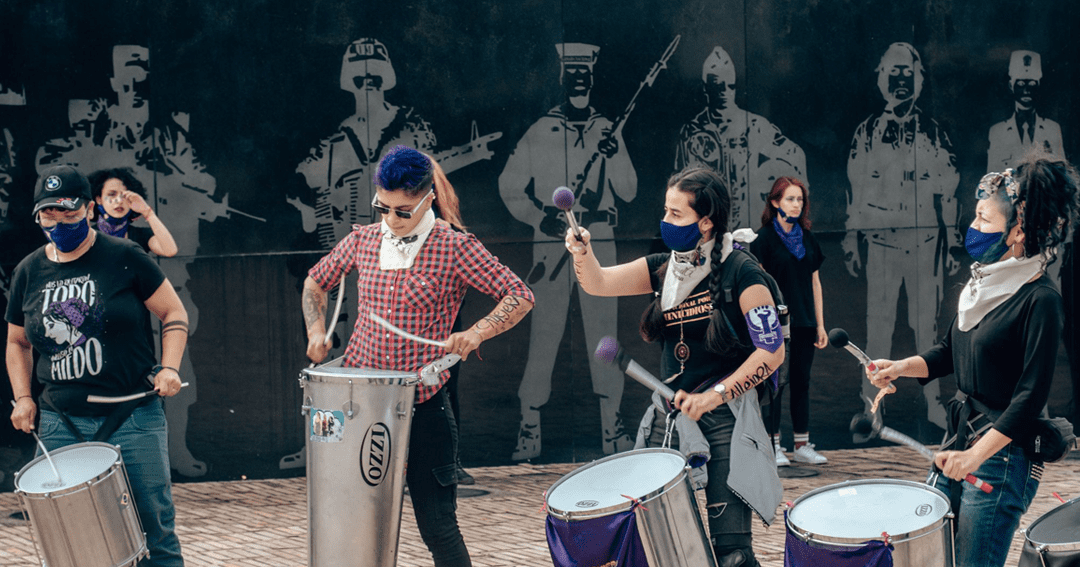
WILPF Colombia is a feminist, pacifist and antimilitarist organization that promotes spaces for reflection, construction and transformation of militarist structures and actions of militarization that, from a feminist point of view, have made women's lives and bodies even more precarious.
In this sense, the feminism that we promote, from our intersectional commitment, and based on which we work at WILPF, is concerned with identifying and transforming the colonialist practices and frameworks that have hierarcically organized the racialized and feminized bodies in Colombian society. Hence, we recognize that one of the most powerful systems of oppression is militarism, which we identify as a framework that has not only influenced Colombian society in its socio-political composition, but has also deeply constrained the construction of women's identities. Therefore, for WILPF anti-militarist feminism is absolutely indispensable as it allows us to analyze, understand, criticize and dismantle, from an intersectional perspective, the militarized structures that ultimately make women's lives more precarious.
In the current Colombian context, militarism has been further exacerbated through police violence, war and the use of weapons and the imposition of militaristic ideologies. From this, the need arises to amplify feminist voices that promote antimilitarism as an alternative. Therefore, WILPF Colombia contributes through knowledge management to the construction of feminist peace from the antimilitarist approach. We do this through training activities, such as the course “Antimilitarist Feminisms: women resisting in order to live in dignity”, publications, such as “Feminist voices: dialogues from pacifism and antimilitarism”, and research on this subject. In these spaces we map the trail of antimilitarist feminism that starts from a historical and material need in order to build new fields of interpretation that place life and dignity at the center to achieve security. Our work promotes a conceptual and practical approach to antimilitarist feminism, recognizing its background, practices and challenges and disseminating this political commitment within the organization and in the groups and networks that we are part of.

